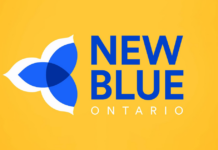An eastern Ontario teachers’ union is warning its members they could face discipline under the human rights code regulating student misbehaviour and expressing a series of opinions, ranging from socially conservative, to apolitical and seemingly innocuous statements.
The Ontario Secondary School Teachers’ Federation local for the Kingston-area Limestone District School Board (LDSB) sent its union members a “member update” warning of potential discipline for violating human rights if teachers use terms such as “blind spot” or tell a student to put their phone away.
The email, obtained by True North and published in full below, was sent by the chief negotiator for Ontario Secondary School Teachers’ Federation district 27, John Vince. It was sent to union members this past December.
In the email, Vince tells the union membership that some views commonly held in the United States and United Kingdom are not allowed in Ontario and that expressing forbidden views could result in discipline.
“Supporting a so-called ‘right wing’ political view (example: Parental rights)” is listed as not allowed, as well as expressing “The notion that there are only two genders.”
Teachers were told that they cannot express the opinion that transgender women who have gone through male puberty should be barred from women’s sport, despite studies concluding that trans women have an unfair advantage over women.
Believing that trans men with penises may make some women uncomfortable in change rooms is barred despite a significant number of women supporting women’s only spaces.
Teachers were told that they should not believe that certain cultural practices are superior to others, giving the example of believing that Western law is superior to Sharia law – the Islamic fundamentalist code of law or that “the Scientific Method is superior to other ways of knowing.”
Vince encouraged teachers that keeping secrets from parents is not a bad thing, telling teachers that they shouldn’t tell parents if they catch their child vaping and implied that if a teacher caught a student snorting cocaine or other illicit substance, parents shouldn’t be notified.
Not only that, but teachers were told to not tell students to get off their phone, to pull their hoodies down, and should not ask a student why they had arrived to class excessively late.
Vince’s email lists this as verboten: “Words that center out a student such as: ‘get off your phone’, ‘pull your hoody down’, ‘why are you thirty (30) minutes late’, ‘what is the answer to this question’, etc…”
Using common words and phrases like “long time no see,” “blindspot,” “hit it out the park,” “no can do,” “ladies and gentlemen,” and “Aboriginal” may also result in discipline, Vince said..
Engaging in prohibited speech could result in a teacher being handed down discipline from the school board and possibly a violation of the Ontario Human Rights Code.
The Ontario Human Rights Code prohibits actions that discriminate against people based on a protected ground, including but not limited to age, colour and race, ethnic origin, disability, gender identity, and sexual orientation.
On the front-page of the school board’s website, staff and students are able to file a human rights complaint about a teacher. Complaints are sent to the Human Rights and Equity Officer in the case of a student-teacher incident. The current Human Rights and Equity Officer is Yusuf Abdulkareem.
True North reached out to Vince for comment, asking him if his union would defend a teacher facing disciplinary action for saying one or several of his cited speech infractions and to that extent can a teacher have their freedom of expression curbed in a free society. Vince did not respond.
Full Text (unedited):
We are seeing an increase in the number of members who are the subject of a Human Rights code complaint. Students, and some staff and/or community members, are using the ‘QR-code’ complaint process. We have grave concerns that the process allows anonymous complaints. Further, someone who is not even in a school, or connected to a school, can simply access the Board’s website and make an anonymous complaint for malicious purposes. Regardless of whether a complaint is anonymous or not, it often sparks a ‘fact-find’ investigation involving staff and students. For spurious allegations, this is causing undue trauma and upset.
There are some speech/actions that members may not know could result in discipline in Limestone District School Board (LDSB) worksites. In other jurisdictions, such as the U.S.A or the U.K. (who’s media many consume) some of this speech is allowed whereas some is not allowed in Ontario, and members may not know this. We have asked the Board to inform staff of what speech cannot be said in Ontario and/or the LDSB and they have indicated they are working on this. In the absence of this training, below are some examples of speech and/or actions that if uttered/performed in a worksite could result in discipline.
- The opinion that women who have gone through male puberty should not participate in women’s sport;
- The opinion that women who have male reproductive organs (ex. a penis) may make some women uncomfortable in change rooms or washrooms;
- The notion that there are only two genders;
- Disagreement that someone could be born in the wrong body or that we all have a ‘gender-soul’;
- The idea that keeping secrets from parents/guardians is bad;
- Using many euphemisms and idioms such as: “long time no see”, “I’d get lynched”, “blind spot”, “hit it out of the park”, “no can do”, etc..;
- Words that center out a student such as: “get off your phone”, “pull your hoody down”, “why are you thirty (30) minutes late”, “what is the answer to this question”, etc…;
- Sharing with parents anything about a student not directly related to the curriculum you are teaching: (examples: “congratulations on your child being in the school play”, “I saw your child snorting a white powder”, “your child was vaping in my class”, etc…);
- Referring to a person using labels: (examples: don’t’ label someone as “deaf” but rather as “a person who is experiencing hearing impairment”, don’t label someone a “murderer” but rather “a person who experienced ending another person’s life”);
- Gendered language such as: “boys and girls” or “guys” or “ladies and gentlemen”;
- Saying ‘Aboriginal’ since the prefix ‘ab’ means ‘non’ and could be interpreted to mean “non-original” to Turtle Island;
- Teaching certain topics in Indigenous Art (NAC) or Indigenous English (NBE) if you are not Indigenous: examples: the Medicine Wheel, Getting to know our Plant relatives, corn mat weaving, Getting to know the Harvest Moon, beading, etc;
- Supporting a so-called “right wing” political view (example: Parental rights);
- The idea that certain cultural practices are superior to others (examples: The Scientific Method is superior to other ways of knowing, Western Law is superior to Sharia Law, etc…);





















